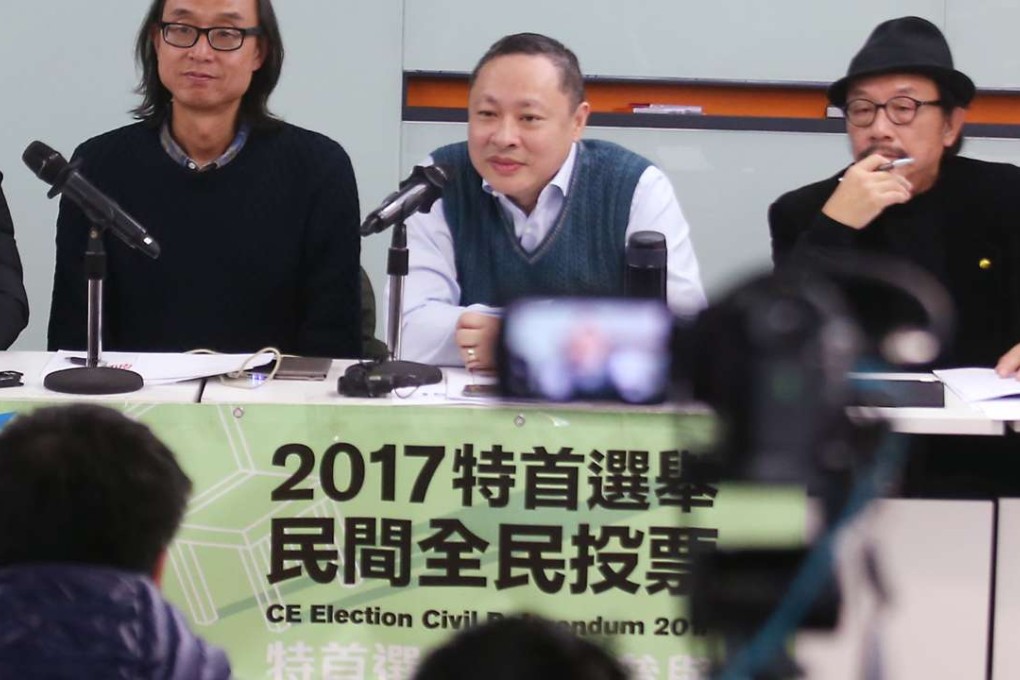My Take | Beware of privacy issues in mock online election
Organisers using mobile apps and a website to give the people a voice in leadership election could be putting data at risk of hacking

Benny Tai Yiu-ting of Occupy Central fame is set to relaunch a mock nomination and election of the chief executive. The so-called civil referendum uses a mobile app and a website to encourage people to nominate and vote for “candidates”.
Critics including the privacy commissioner have expressed alarm. Tai’s previous ThunderGo mobile app debacle was accused by even some pan-democratic candidates in the last Legislative Council election of distorting the voting outcomes by favouring extremist candidates over more mainstream ones.
In a rare foray into the city’s fractious politics, the privacy commissioner expressed concerns earlier this month about their handling of personal data from participants. As a result, Tai and his group temporarily halted the “referendum” last week. Now they claim they have resolved the security issues. Perhaps users can take his word for it; they take part at their own risk. The commissioner would do well to continue probing his group and intervene if necessary.
The mock voting involves two stages. People can first pick their chief executive candidates via a mobile app or a designated website. They will then vote on their favourite as well as least favoured candidates. In an attempt to influence the real election outcome, Tai said pan-democratic members, who make up more than a quarter of the 1,194-strong Election Committee, should use the public votes as a guide when casting their own ballots.
